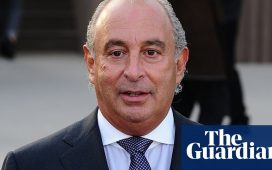Being marooned on a heavily laden ammunition ship in San Carlos Water at the height of the 1982 Falklands war during Argentinian air attacks was the punishment meted out to the Guardi journalist Gareth Parry by the Ministry of Defence for not writing what the military wanted.
Gareth, who has died of prostate cancer aged 86, had a tough war. He and the crew of the RFA Resource survived only because the bombs bounced off the supply ship and failed to explode – the Argentinian armourers had set the fuses wrongly.
Despite this attempt to prevent the Guardian reporting the war, Gareth managed to get a lift to the shore and set off on foot to try to reach the battle zone. Dressed in inadequate clothing in the cold and wet, he was lucky to meet the Special Boat Squadron unit who were camped on the island. He had made friends with them aboard HMS Invincible during the 51 days at sea on the way to the Falklands. They helped him to acquire the kit he needed to survive – clothing that had already been supplied by the MoD to more favoured journalists.
Gareth was an angry man when he finally returned to Britain, but not because of the way he had been treated – it was the fact that hardly a word of his hard-won dispatches had reached the news desk in London. His copy and that of other newspaper correspondents whom the MoD mistrusted was censored.
The result of this censorship were the “pooled dispatches” sent to news desks via the MoD, which always put the best possible gloss on the progress of the campaign. It was the last western war in which the military would be able to muzzle the press. Gareth was also cross because, while he had been totally cut off from communication by the military for 10 days during the heat of the battle, neither the Guardian nor his wife Brenda, a Daily Telegraph reporter, had any idea whether he was still alive.
Although Gareth was a veteran of reporting other wars, including Vietnam and the Turkish invasion of Cyprus, it was the harrowing months of the Falklands campaign that he regarded as his worst experience in journalism.
This was not just because of his treatment by the MoD. He witnessed the burning of the Welsh Guards on HMS Sir Galahad. When he returned to the Falklands 20 years after the war to write a piece for the paper he also recalled the horror of the loss of British soldiers and seeing the bodies of hundreds of Argentinian conscripts in mass graves.
Gareth was an old school Fleet Street operator. Typical of his many exclusives was an episode while on the Daily Express in 1963. Gareth flew with the rest of Fleet Street’s finest to South Africa to interview Christiaan Barnard after the surgeon had carried out the world’s first heart transplant, only to be told that Barnard did not want to speak to the press. Hearing that Barnard was flying home to London, Gareth gambled his Express expenses on a first-class ticket on the same flight. Before the plane touched down at Heathrow, he had got the exclusive interview with Barnard while his rivals were all still in Cape Town.
Unlike many of the modern generation of journalists, Gareth did not go to university. He was born in Old Colwyn, north Wales, the eldest of four children of Eirwen (nee Hughes) and Emyr Parry, and spoke Welsh until he was seven. He was spotted as a bright boy but his hopes of going to Oxford from Beaumaris grammar school in Anglesey (Ynys Môn) were dashed when his parents, who ran a grocery store, went bankrupt. The family fled to Liverpool with the little they could carry.
Gareth got a job in Martins Bank, but in 1956 was among the last tranche to be called up to do his national service and joined the RAF. He met a photographer and this sparked his interest in journalism. When demobbed he joined the Bootle Times. This began his 16-year journey to joining what he called “the writer’s paper” – the Guardian.
On the way he worked for the Wolverhampton Chronicle, the now defunct Bristol Evening World, and joined the Daily Express in Manchester in 1962. He became the paper’s far east correspondent covering the Vietnam war including the Tet offensive of 1968. He joined the Daily Mail in 1972 before securing a job on the Guardian as a general news reporter. Shortly after joining he was sent to cover the Turkish invasion of Cyprus and along with a group of English journalists was blown up in a Turkish minefield. One reporter was killed and others badly injured but Gareth escaped with shrapnel embedded in his fingers.
Outside journalism Gareth had many interests, including cooking. Based on his skills in modernising four of his own homes, he wrote regular do-it-yourself columns for the Guardian, which were turned into a book, DIY for All Seasons (1991). He was an early advocate of searching in skips for high quality timber and other useful items.
After leaving the paper in 1991 he returned to Wales and continued to write his DIY columns, contributing to the Guardian, the Telegraph, the Times and Saga magazine. In 2007 he and Brenda moved to Salisbury, Wiltshire, to be near their daughter, Angharad.
He is survived by Brenda (nee Holton), whom he married in 1975 when they were both working on the Daily Mail, and Angharad; by Victoria, the daughter from his first marriage, to Geraldine Mutty, which ended in divorce; and by four grandchidren.











